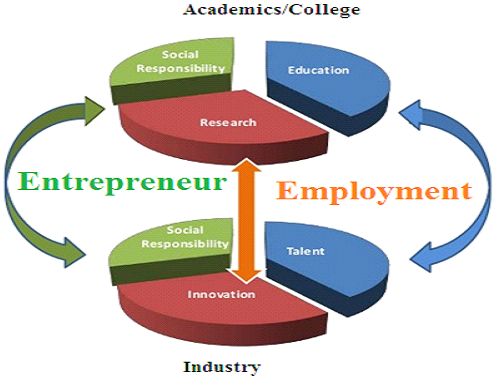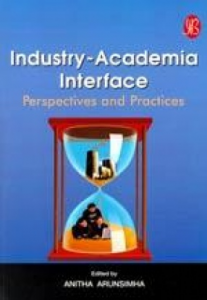A closely-knit collaboration between industry and academia supports improvement and helps ensure the industrial relevance of the curriculum. The hospitality sector, especially the hotels, though known to be moving hand-in-hand with the academia, tend to move faster, especially with regard to the adoption of new methods and that of bringing about changes in systems and procedures. Some of these modifications, for the sake of enhancing customer satisfaction and for improved security, may even be introduced and implemented overnight.

A thorough study of a peculiar case in a hotel arouses opportunities of practical learning and encourages modifications which are eventually oriented towards enhancing guest experience. Such experiments may even result into being adopted as part of the Standard Operation Procedures out of which the concerned hotel as well as the industry as a whole do get to derive adequate learning and are eventually benefitted. However, the concepts of such changes brought about by the industry take time in reaching the four walls of classrooms and take their due course in having the academia implement them as part of the curriculum. The introduction of Disaster Management as an accredited course in hotel management institutes is considered to be the fall-out of the terrorist attack at the Taj Hotel in November 2008.
 Having the hotels and institutes sign agreements, pacts or an understanding for the purpose of promoting opportunities of short-term and long-term internships, exposures, placements, guest-lectures and mutual interaction is an activity that all celebrated hotels and renowned institutes must, sooner or later, get into. Such activities, besides allowing a hands-on exposure to the students, get them to observe the differences between what they have learnt in the classrooms and the function that they are getting perform during the period of their internship at the service establishment.
Having the hotels and institutes sign agreements, pacts or an understanding for the purpose of promoting opportunities of short-term and long-term internships, exposures, placements, guest-lectures and mutual interaction is an activity that all celebrated hotels and renowned institutes must, sooner or later, get into. Such activities, besides allowing a hands-on exposure to the students, get them to observe the differences between what they have learnt in the classrooms and the function that they are getting perform during the period of their internship at the service establishment.
The benefits of such agreements accrue to the industry as well as to the academia in so much as they are instrumental in filling knowledge gaps and make the pursuance of a hospitality course (of any course in question) a meaningful, significant and indeed a worthwhile exercise.
The Vatel Hotel and Tourism Business School, Sushant University, declared as the best hotel management school in South Haryana, having collaboration with one of the largest HM institutes in the world, namely the Institut Vatel, based in Lyon, France, believes that the schools which have a lot of subjects dealing with operations, need to be very closely connected with the industry, where the procedures and systems are so frequently modified and upgraded. That’s how the students will tend to get a feel of the latest happenings in the world of hospitality.

Many a times, instances of students getting absorbed by a hotel (where a student has conducted internship) for a permanent placement have been observed. Internships facilitate a profound knowledge of the background, the history, the growth, the product knowledge and the style of service adopted by the concerned hotel/service establishment. The experience thus gained by the students helps them enormously in succeeding in the placement interviews as the questions asked are usually oriented towards these aspects.

Let us now examine the other side of the coin. In order to address the challenges related to competitiveness and effectiveness, the organisations also tend to look beyond the industry partners and focus towards academic collaborators for innovation. The vast bank of knowledge, data and information available at the institutions, which are regularly used for research, exploration and for case studies can function as readily-available sources for the hotel operators to derive some learning and for training their skilled, semi-skilled and unskilled staff.
 A healthy industry-academia relationship will influence, on one hand, the hotel managers visiting institutions on several occasions to deliver lectures on specialized subjects, to discuss the latest and the evolving trends in hospitality and about the best practices being adopted by them, and on the other, will induce the professors and learned resources from the institutes to deliver lectures on human resources, finance and marketing.
A healthy industry-academia relationship will influence, on one hand, the hotel managers visiting institutions on several occasions to deliver lectures on specialized subjects, to discuss the latest and the evolving trends in hospitality and about the best practices being adopted by them, and on the other, will induce the professors and learned resources from the institutes to deliver lectures on human resources, finance and marketing.
A collaboration, by virtue of it being useful to the industry as well as to the institutes, can go a long way in cementing the mutual relationships and can breed positive results for both the entities. Both of them play the roles of suppliers and customers and complement each other’s functions.

